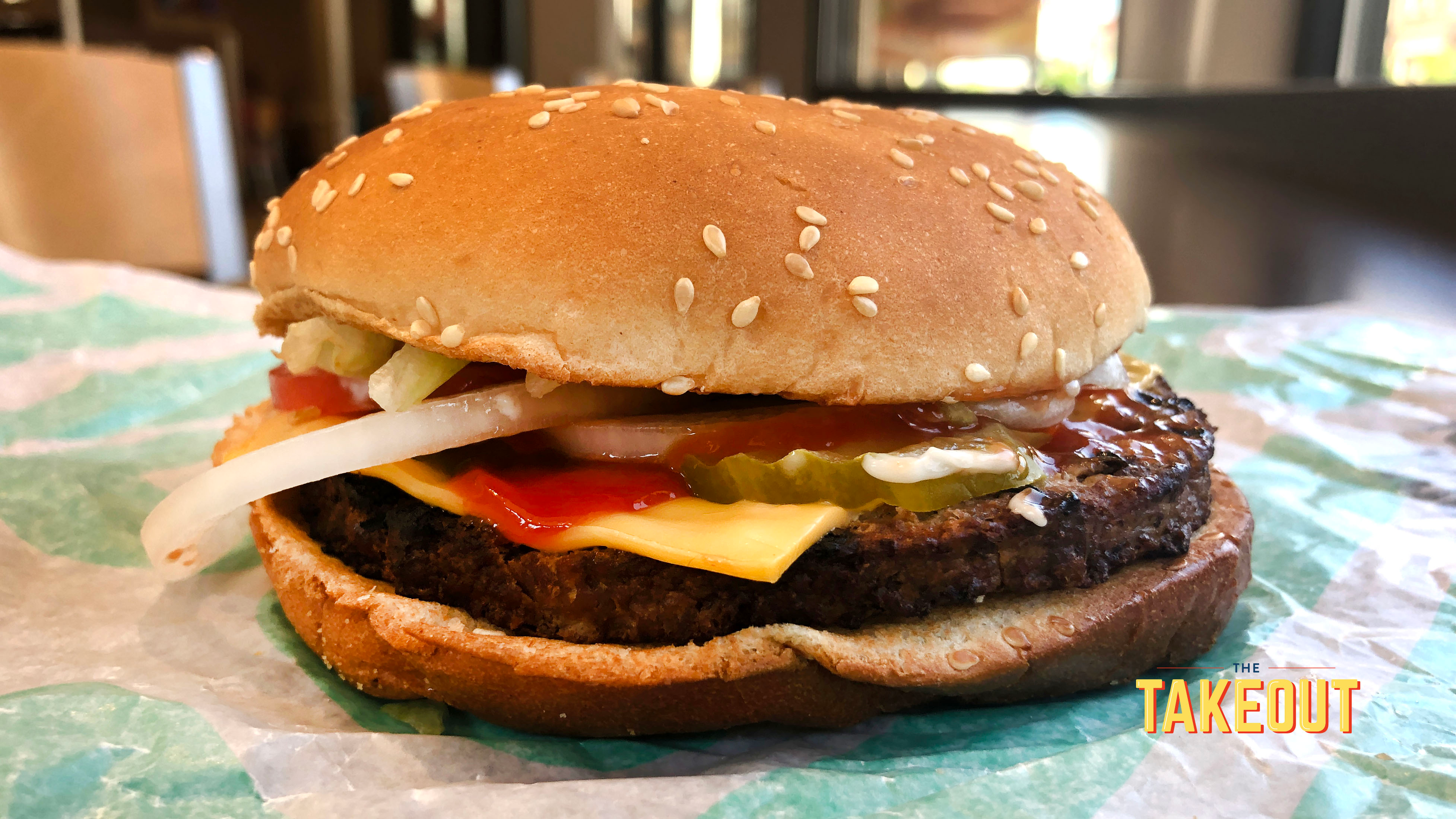Burger King's Impossible Whopper Changes The Game
The Impossible Whopper has landed, and like John/Paul/George/Ringo stepping off their Pan Am flight onto the JFK airport tarmac, the impact may be bigger than you'd imagine.
Let us give you 30 seconds of context: Breaking through to the meat-free crowd has been the holy grail of fast food chains for decades. Any vegetarian entrees they test-marketed were treated as novelty and didn't stay on the menu for long. Marketers can postmortem and come up with a hundred reasons why those failed, but the Occam's razor explanation: None tasted any good. But then Impossible Foods and Beyond Meat roared onto the scene over the past couple years. Those two companies produced a plant-based burger patty that replicated the flavor and texture of beef closer than anything heretofore on the market. That a faux burger could taste pretty close to a real-deal beef burger was a significant psychological hurdle for consumers to overcome, and now, carnivores no longer associate vegetarian burgers with the bland cardboard engineering nightmares of plant-based yesteryear.
So here we are. After White Castle proved last year a plant-based slider could actually work, Burger King unveiled nationwide on Thursday its flagship Whopper using Impossible Food's soy and potato protein-based burger patties.
The most noticeable part of eating this non-beef burger comes in the first three seconds upon biting in. If you've cooked a Beyond Meat burger in the past (Impossible Foods will begin selling in retail stores this fall), you'll recognize that laboratory-grown, bean-like aroma. But how these plant-based patties work is that they're not supposed to taste like anything; the perception is mostly consistency and texture, leaving other toppings and accoutrements to mask that plant-protein taste and allow your mind to fill in the blanks.
With the standard Whopper, it might as well be offered as a vegetable sandwich with a meat-patty topping: So much of the Whopper experience is the crunch of pickles and raw onion with aggressive ketchup and mayonnaise, and most recognizable, the flavor from the chargrill. Unlike the standard Whopper (which I ordered on the side as a control), that char taste is less present with the Impossible Whopper, with less saltiness and unctuousness than its beef-pattied brethren. But it feels like a Whopper. If you have a cold, it'll taste exactly like a Whopper. What's sacrificed is the beef savoriness and the interplay of cheese and grill flavors, but this passes the "If you didn't know" test—if 100 people ordered a standard Whopper and were handed an Impossible Whopper, I'd guess less than 10 would turn around and ask for a refund. (For those wondering how it compares in nutrition: The Impossible Whopper is only 30 calories and six grams of fat less than the standard Whopper, and 100 mg more sodium. And at the Chicago-area Burger King I visited, my Impossible Whopper cost $5.59 with 30 cents more for cheese.)
This sandwich may not be an A+, but it's a big deal. We're talking about the 4th largest fast food chain in the country offering a viable plant-based burger that'll be embraced by many (though because it's cooked on the same grill as its beef and chicken sandwiches, Burger King admits it's not entirely vegetarian or vegan). Plant-based foods will only improve in taste in the coming years, and other chains will follow in White Castle and Burger King's footsteps. This may be the moment that fast food's holy grail is finally within grasp.
